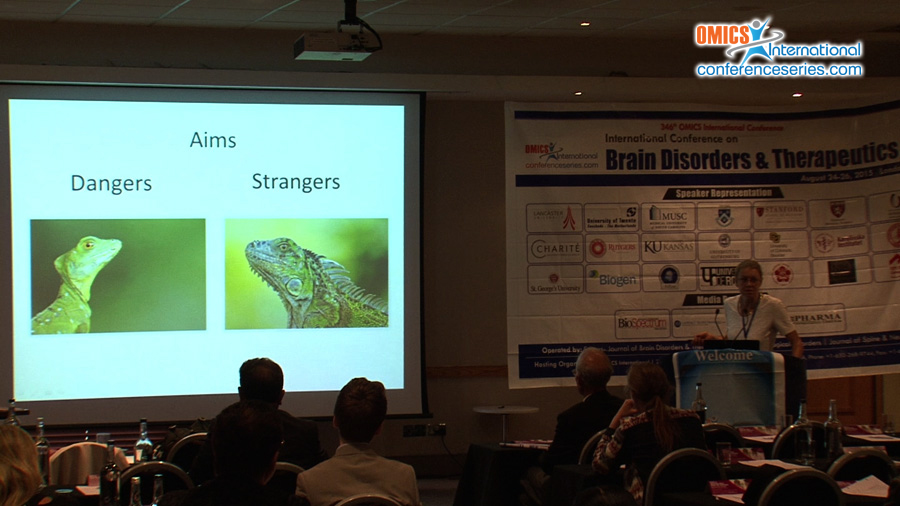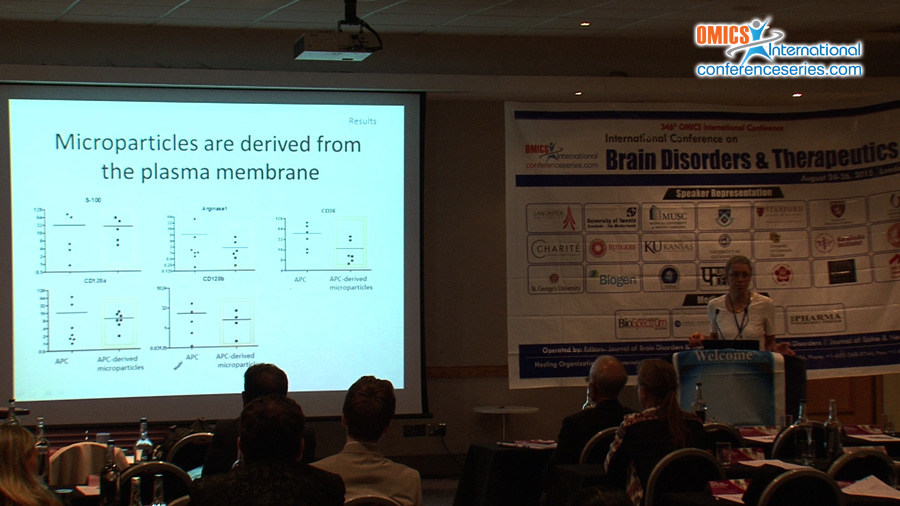
Marion Schneider
University Hospital Ulm, Germany
Title: Characterization of Microparticles derived from cultured macrophages and cerebrospinal fluid of patients with schizophrenic and affective disorders
Biography
Biography: Marion Schneider
Abstract
Inflammatory antigen presenting cells (APC, dendritic cells and macrophages) are characteristic for patients with affective disorders and can be enriched from Ficoll-isolated mononuclear cells by 3-4 weeks of in-vitro culture. Flow cytometry, electron microscopy, Western Blots and cytokine quantification were applied to characterize the cell type and the inflammatory response in blood and cerebrospinal fluid (CSF). These analyses demonstrate that the enriched APC can be classified into either dendritic cells (iDCs), M1 or M2 macrophages. All cell isolates display high macropinocytotic activity and in addition form prominent autophagous vacuoles. The M1 type occurred more often in affective disorders than in schizophrenics. M1 cells expressed the ATP-sensitive P2R7 ion channel. ATP stimulation of the P2X7 ion channel caused the release of plasma membrane vesicles and microparticles (MP). MPs enriched from blood-derived APC cultures and from native CSF were subjected to protein chemical as well as miRNA analysis. All MP preparations were β-actin positive and in part stained for the autophagy marker LC3-II. When compared to the cultured APC-target cells, the microparticles were stronger positive for arginase 1, CD95, S100 and CD178, whereas CD36, and the TNF-R type I (CD120a) were decreased. MiRNA analysis revealed inflammatory signatures in the majority of affective disorders. These results indicate that microparticles may transport protein and miRNA species to target tissues. The current protocol proved to be valid to simultaneously study MP generation in vitro using cultured APC and to isolate and characterize MP from the CSF.
Speaker Presentations
Speaker PDFs
Speaker PPTs Click Here




